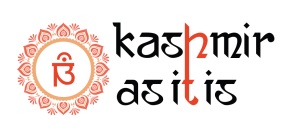Wanwun means Chorus, sung in the auspicious ceremonies like marriage and yegnopavit. “Wanwun” is sung on a fixed beat, with a spoken word type rhythm. The tune is always the same, but depending on which event it is sung at, the pitch varies. The women singing use alliteration, emphasis, metaphor, and simile to tell stories through song.
{From Koshur.Org – Wanvun is a song form, which means to say something on some celebration in a particular way and musical patterns. In the past the ladies used to create poetry on the spot. Once it used to be a craze to sing in such form amongst Kashmiri ladies. It reflected since ages the age-old rich cultural ethos of Kashmiries, which had no religious, social or any other kind of discrimination which made it to survive.
Occasions when Wanvun and related things are sung:-
Preparations:
Sat-u-livun (Cleaning and painting the house on an auspicious day);
Tomul Chatun (Cleaning of rice);
Zyun Phalun (Wood cutting);
Dapnas (Inviting);
Livun (Decorating house with natural clay paint or painting);
Mas muchrun (Hail dress of the bride).
Mekhal (Thread ceremony):
Krool Kharnas (Decorating the entrance with colors); War-Banawnas (Preparation of a special salty dish with rice and walnut); Maanziraath-Maanz lagenyi (Henna night); Aalath (Special welcome ceremony); Duri Batu (Special lunch hosted by the host family to all nears and dears);
Divgoan (A ritual performed before going for marriage or thread ceremony):
Kani Shraan (Holy bath with rituals);
Kori Divgoan (Ritual of girls before they get married);
Div Tu Gulyi (Ritualistic preparations on various ceremonies);
Yonyi (Thread ceremony; Mas Kasun (Hair cut);
Vari Daan (Ritual on thread ceremony);
Abeed (Collection of funds done by the Mekhala boy for his Guru from all present);
Mandul (A picture of Mahagayatri the presiding deity of the thread ceremony being drawn on the occasion with natural colors);
Maharaz-e Neruk/ Yivuk (On the completion of thread ceremony the Mekhala boy is taken to a nearby temple and return home celebrating the occasion, the women chant Wanvun. Even Muslim women on many occasions are seen singing their version of Wanvun too a unique thing which is a dream now.
Khander (The marriage):
Ladk-e-sundi-Gari (At Groom’s house):
Dastaaras (At the time of putting headgear);
Veegis (A colored circle on which the groom is kept standing for some rituals and blessed by elderly ladies before leaving for bride’s house); Maharaz-e Neruk (When the groom leaves for bride’s place);
Kori-Hundi Gari: (At girl’s house):
Maas Paarnas (Hair dressing);
Tarengas (While putting on the Trenga a special Kashmiri headgear); Poshakas (While wearing cloths);
Maharaz-e-Yivuk (On the arrival of the Groom);
Veegis (The colored circle on which the groom and the bride are kept standing and rituals are performed also both are blessed by elderly ladies before entering into the bride’s house for marriage rituals);
Aalath (Special welcome ceremony);
Ratnu Chaagis (Rituals while on colored circle);
Nabad Aaprunas (While on colored circle sweets are given to both to eat);
Lagen (The marriage by ritualistic way);
Kanya-daan (Handing over of the daughter to her in-laws);
Layiboay (A ritual performed by a youngest boy child on girls side);
Gang-e-vyas ( A ritual performed by the youngest girl child);
Satpadi (A ritual while Lagan crossing seven steps of divine reverence);
Pos-e-pooza ( Worshipping the married couple in the form of Shiva and Shakti);
Veegis (The colored circle on which the groom and the bride are kept standing and rituals are performed also both are blessed by elderly ladies after they have to leave from bride’s house to Groom’s house Wanvun is done by Hindoo and Muslim ladies both.
Maharenyi Nernas (While bride leaves for her Wariv to the Groom’s family)…
Ladk-e-sundi-Gari (At the residence of groom):
Maharaz-e- Yivuk (On the arrival of the Groom);
Veegis (The colored circle on which the groom and the bride are kept standing and rituals are performed also both are blessed by elderly ladies before entering into the groom’s house for last marriage rituals);
Dayibatu (The divine food- The couple is made to sit on the ‘Daan’ the clay stove being used as seat and the elderly lady in the family arrive there with a ‘Thaal’ a plate of food which, she with her own hand made the couple to eat the dishes prepared for them).
Baki Badye Doh (Rest of the days being celebrated when ladies present Wanvun):
Zyanas (Birth related rituals):
Shraan-Sonder (Herbal bathing- Ladies sing other forms of wish making);
Naamkaran (A different form of wish making is sung);
Anprashun (A different form of wish making is sung);
Shishur (A different form of wish making is sung);
Zarkaas-Maanz Lagenyi (Wanvun is done as in the thread ceremony);
Kahnether (Most important ritual which is compulsorily to be performed before the thread ceremony is done).
Vedya-arambh (The beginning of the education- The Shlokas in Sanskrit and some traditional poems are recited on this day)





